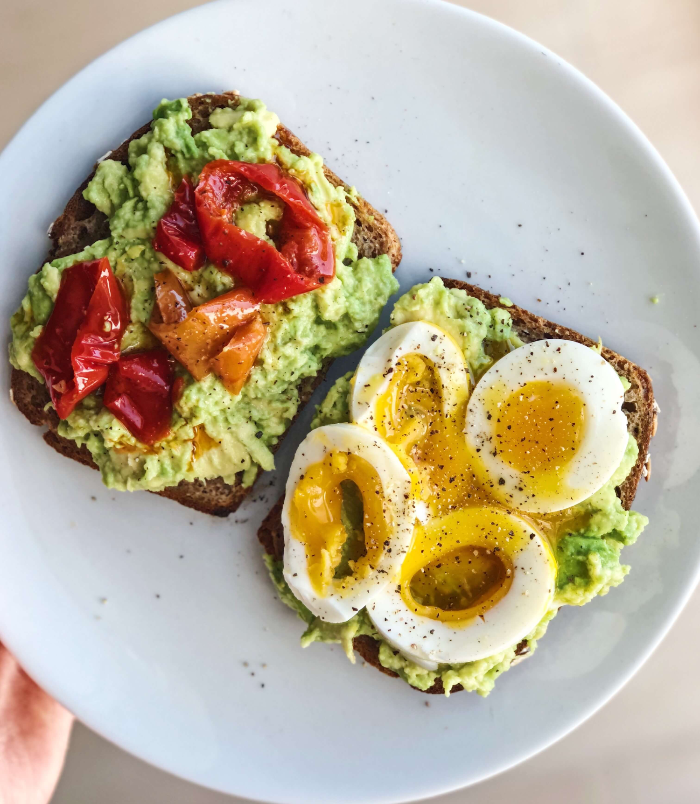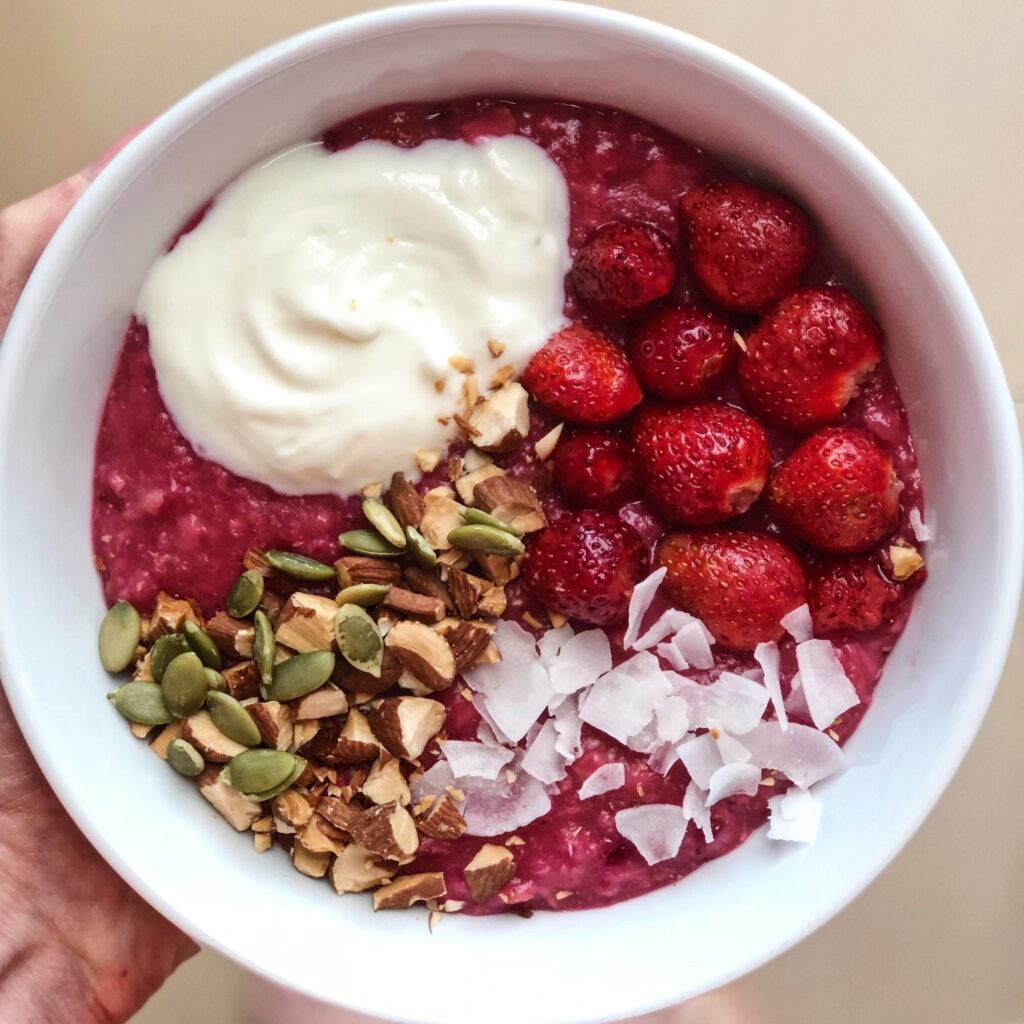A Runner’s Guide on What To Eat Before and After a Workout

One of the most common questions I get from clients is “what should I be eating before and after a run?”. While there are some general tips that can help guide you in the right direction, you have to remember that everyone digests foods differently. Some people have stomachs of steel and can eat a […]
One of the most common questions I get from clients is “what should I be eating before and after a run?”. While there are some general tips that can help guide you in the right direction, you have to remember that everyone digests foods differently. Some people have stomachs of steel and can eat a […]

One of the most common questions I get from clients is “what should I be eating before and after a run?”. While there are some general tips that can help guide you in the right direction, you have to remember that everyone digests foods differently.
Some people have stomachs of steel and can eat a big bowl of cheesy chili before a run and be fine, while that might send others straight to the porta-potty! I’m definitely the latter… That’s why it’s so important to use trial and error to find what works best for your body.
Let’s dive into how running affects your digestion.
Does Exercise Affect Digestion?
We’ve all experienced some degree of digestive stress during a run whether it’s cramping, diarrhea, or heartburn. There are many reasons why this happens during exercise, but I will focus on the two most common and researched causes.
Blood flow
When you go for a run, your blood flow wants to go to your working heart and muscles and away from your digestive tract, which dramatically slows down your digestion. This is why you want to eat things that are fast and easy to digest before a run. Otherwise, it will be stuck in your gut potentially causing cramping and discomfort. This shunting of blood away from your intestines also makes them more permeable and easily agitated (1).
The Jostle Effect
When you’re running, your internal organs are being repetitively jostled around. These constant high-impact motions can cause symptoms like gas and urgency (2). Unfortunately, we can’t run in a way that jostles our organs less so let’s talk about what you CAN do to combat digestive issues.
What To Eat Before Going On a Run
There is little you can do to bring blood flow to your intestines or prevent ‘the jostling effect’. The only thing you have control over is what you eat and drink.
If you’re eating a meal before a run, try to do it at least 3 hours before. If you’re feeling hungry or need a little more fuel closer to the run, have a snack at least 30 minutes before you leave. This snack shouldn’t be super high in fiber, protein, or fat as these nutrients take a lot longer to digest.
The key is to have easily digested carbs with a little bit of protein, fat, and fiber to help you maintain more steady energy while avoiding digestive issues. Here are a few tips:
- Eat simple carbohydrates that are easy to digest.
- Mix the carbs with a little bit of fat, fiber, and protein, but not too much!
- Eat your snack at least 30 minutes before your run to prevent digestive stress.
- Drink plenty of water to stay hydrated, prevent constipation, and help with digestion.
Here are some of my favorite pre-run snacks:
- Banana with nut butter
- Crackers with mashed avocado
- Sweet potato with melted coconut oil and cinnamon
- Nori rice with avocado (basically a deconstructed avocado sushi roll)
What To Eat After Running
Your pre-run snack focuses on eating something that will give you sustained energy without digestive upset. After a run, you want to focus on foods that will fight inflammation, promote recovery, and nourish your body. Here are four things you want to focus on:
- Complex carbs for rebuilding your glycogen stores (what your muscles use for energy)
- Good quality protein to build and repair muscles
- Healthy fats for nutrient absorption and inflammation.
- Plants for antioxidants and micronutrients
Here are some of my favorites that are easy to throw together or prep ahead:
- Whole grain avocado toast with sautéed spinach/kale and eggs
- Veggie loaded frittata with whole grain buttered toast
- Grain bowl: brown rice, roasted veggies, avocado, tempeh, or chicken, drizzled with Tahini Sauce
- Raspberry Beet Smoothie Bowl from Run Fast. Cook Fast. Eat Slow.

Comment below with your favorite pre and post-run fuel!
Find more nourishing recipes and meal/snack inspo here!
References:


leave your comments!